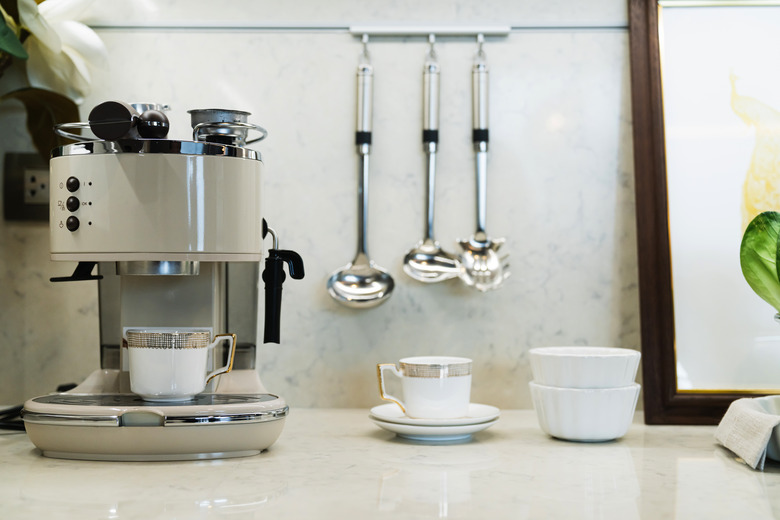How To Decalcify A DeLonghi Coffee Machine
We may receive a commission on purchases made from links.
More and more of us are choosing to make our coffee at home rather than relying on expensive coffee shops. There are many methods to create delicious coffee at home, and certain specific coffee machines are becoming extremely popular. Being able to reliably make your perfect cup every time does seem hard to beat.
But there are some downsides to at-home espresso machines. Over time, they can fall victim to a buildup of mineral deposits, causing damage to the machine and a less pleasant coffee taste. Decalcifying your coffee machine could be the key to keeping it working to the best of its ability.
De'Longhi Pros and Cons
De'Longhi Pros and Cons
De'Longhi coffee makers are some of the most popular on the market. They have been on the market for more than 100 years and offer a huge range of different machine types. De'Longhi coffee makers are known for their versatility, so any machine can offer a wide variety of coffee styles. They also come with a two-year warranty as standard.
One downside to the De'Longhi machine range is the price. They're a premium option with a price tag to match. However, if you're a true coffee aficionado, you may find your machine to be worth the splurge.
Another downside some point out about De'Longhi coffee machines is their propensity to become effected by mineral buildup. Luckily, there are easy and safe methods to decalcify your De'Longhi at home.
When to Descale De'Longhi Machine
When to Descale De'Longhi Machine
According to Which, all coffee makers can be subject to mineral buildup over time, particularly if you live in an area with harder water. You may start to notice some issues with your machine when it's time for it to be descaled, including leaking, a reduced flow of water or lower water pressure, a lack of heat or unusual noises. You may also notice a change in the taste of your coffee. According to Cool Blue, many modern De'Longhi machines will actually tell you when they need to be descaled.
How to Descale a De'Longhi
How to Descale a De'Longhi
You can use a commercial descaler on your De'Longhi. Descaler claims you simply run a cycle through your machine using one of these products to remove any mineral buildup. These are obviously effective, although many worry about the potential of ingesting remnants of these powerful cleaners. If that's the case, you can descale your De'Longhi coffee machine using some different household items instead.
Descaling your espresso machine with citric acid or vinegar takes a little more time but could be a safer option. Simply fill your machine with a mixture of 1 tablespoon of white vinegar or lemon juice per 5 cups of water. Remove your machine's filter basket and place your carafe in position. Plug your De'Longhi machine in and begin a brewing cycle.
Once your carafe is filled with your vinegar or lemon juice mixture, dump it out and refill your machine with water. Run another brewing cycle. Once your carafe is filled, check it for any mineral deposits or acidic smell. Repeat the plain water brewing process until your carafe's water is clear and unscented.
